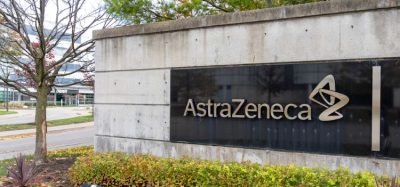FDA grants Roche’s Perjeta regimen Priority Review for use before surgery in HER2-positive early-stage breast cancer
Posted: 2 July 2013 | | No comments yet
The U.S. FDA has accepted the company’s sBLA for the use of a Perjeta®…
Roche (SIX: RO, ROG; OTCQX: RHHBY) today announced that the U.S. Food and Drug Administration (FDA) has accepted the company’s supplemental Biologics License Application (sBLA) for the use of a Perjeta® (pertuzumab) regimen before surgery (neoadjuvant treatment) in people with HER2-positive early-stage breast cancer. The FDA has granted a Priority Review of the application and will make a decision on approval by October 31, 2013.
“The impact of treatment in breast cancer is greatest in the early stage, before the cancer has spread to other parts of the body,” said Hal Barron, M.D., Roche’s Chief Medical Officer and Head, Global Product Development. “We look forward to working with the FDA to bring this potential option to people with HER2-positive early-stage breast cancer as soon as possible.”
Neoadjuvant therapy is a treatment option given after diagnosis but before surgery for early-stage breast cancer (cancer that has not spread beyond the breast or lymph nodes). Neoadjuvant treatment aims to reduce a tumour’s size so it may be easier to surgically remove, or to allow for breast-conserving surgery. There are currently no FDA-approved neoadjuvant treatments for cancer. A common measure of neoadjuvant treatment effect in breast cancer is pathological complete response (pCR), which means there is no tumour tissue detectable at the time of surgery. Perjeta is already approved in the U.S. and Europe for people with HER2-positive metastatic breast cancer, an advanced form of the disease.
Perjeta is a personalised medicine that targets the HER2 receptor, a protein found in high quantities on the outside of cancer cells in HER2-positive cancers. The combination of Perjeta, Herceptin and docetaxel chemotherapy is thought to provide a more comprehensive blockade of HER signalling pathways.
A Priority Review designation is granted to medicines that the FDA believes have the potential to provide significant improvements in the treatment, prevention or diagnosis of a disease.
The application is based primarily on results from NEOSPHERE and TRYPHAENA, two Phase II studies of Perjeta in HER2-positive early-stage breast cancer, as well as on longer-term safety data from the Phase III CLEOPATRA study of Perjeta in HER2-positive metastatic breast cancer.
About the NEOSPHERE Study
The NEOSPHERE study (Neoadjuvant Study of Pertuzumab and Herceptin in an Early Regimen Evaluation) is a randomised, multicentre, international Phase II study that was conducted in 417 people with newly diagnosed HER2-positive, locally advanced, inflammatory or early-stage breast cancer. Participants were randomised to four study arms and received four cycles (12 weeks) of neoadjuvant treatment. The primary endpoint was pCR. Secondary endpoints included clinical response, time to clinical response, safety profile, disease-free survival (DFS), breast-conserving surgery rate and biomarker assessment. Study data showed the following:
- Treatment with Perjeta, Herceptin and docetaxel chemotherapy significantly improved the rate of pCR by 58 percent compared to Herceptin and docetaxel alone (45.8 percent vs. 29.0 percent, p=0.014).
pCR of 29.0 percent for Herceptin and docetaxel
pCR of 45.8 percent for Perjeta, Herceptin and docetaxel
pCR of 16.8 percent for Perjeta and Herceptin
pCR of 24.0 percent for Perjeta and docetaxel - The combination of Perjeta, Herceptin and docetaxel was not associated with a significant increase in adverse events (AEs) or cardiac AEs, compared to Herceptin and docetaxel.
- The most common severe (Grade 3 or higher) AEs for the Perjeta regimen were neutropenia (decrease in a certain type of white blood cell, 44.9 percent), febrile neutropenia (fever associated with decrease in a certain type of white blood cell, 8.4 percent) and diarrhea (5.6 percent).
About the TRYPHAENA Study
The TRYPHAENA study (ToleRabilitY of Pertuzumab, Herceptin and AnthracyclinEs in NeoAdjuvant breast cancer) is a randomized, multicenter Phase II study that was conducted in 225 people with HER2-positive locally advanced, inflammatory or early-stage breast cancer. Participants were randomised to one of three neoadjuvant Perjeta regimens. The primary endpoint was cardiac safety. Secondary endpoints included pCR, clinical response, breast-conserving surgery rate, DFS, progression-free survival (PFS), overall survival (OS) and biomarker assessment. Study data showed the following:
- The study was not powered to compare the three study arms. The rate of pCR in the three arms were as follows:
pCR of 61.6 percent for Perjeta, Herceptin and anthracycline-based chemotherapy, followed by Perjeta, Herceptin and docetaxel
pCR of 57.3 percent for anthracycline-based chemotherapy, followed by Perjeta, Herceptin and docetaxel
pCR of 66.2 percent for the anthracycline-free arm (Perjeta, Herceptin, docetaxel and carboplatin chemotherapy) - No new or unexpected cardiac AEs, or other AEs, were observed in any of the study arms. AEs observed were consistent with those seen in previous studies of Perjeta, Herceptin and chemotherapy, either in combination or alone.
- The most common severe AEs in any of the three study arms were:
In the concurrent arm: neutropenia (47.2 percent), leukopenia (decrease in overall white blood cells, 19.4 percent) and febrile neutropenia (18.1 percent)
In the sequential arm: neutropenia (42.7 percent), leukopenia (12.0 percent) and febrile neutropenia (9.3 percent)
In the anthracycline-free arm: neutropenia (46.1 percent), febrile neutropenia (17.1 percent), anemia (decrease in red blood cells, 17.1 percent); the AEs of diarrhea, leukopenia, anemia and thrombocytopenia (decrease in platelets) all had an incidence of 11.8 percent.
The ongoing Phase III APHINITY study will further evaluate Perjeta in the adjuvant setting (after surgery) and compares Perjeta, Herceptin and standard regimens of adjuvant chemotherapy with Herceptin and standard regimens of adjuvant chemotherapy in people with HER2-positive early-stage breast cancer. The study will enroll approximately 4,800 people, and the primary endpoint is invasive disease-free survival (IDFS).
About Perjeta
Perjeta is designed specifically to prevent the HER2 receptor from pairing (or “dimerising”) with other HER receptors (EGFR/HER1, HER3 and HER4) on the surface of cells, a process that is believed to play a role in tumour growth and survival. Binding of Perjeta to HER2 may also signal the body’s immune system to destroy the cancer cells. The mechanisms of action of Perjeta and Herceptin are believed to complement each other, as both bind to the HER2 receptor, but to different places.
About breast cancer
Breast cancer is the most common cancer among women worldwide. Each year, about 1.4 million new cases of breast cancer are diagnosed worldwide, and over 450,000 women will die of the disease annually. In HER2-positive breast cancer, increased quantities of the human epidermal growth factor receptor 2 (HER2) are present on the surface of the tumour cells. This is known as “HER2 positivity” and affects approximately 15-20 percent of women with breast cancer. HER2-positive cancer is a particularly aggressive form of breast cancer.









